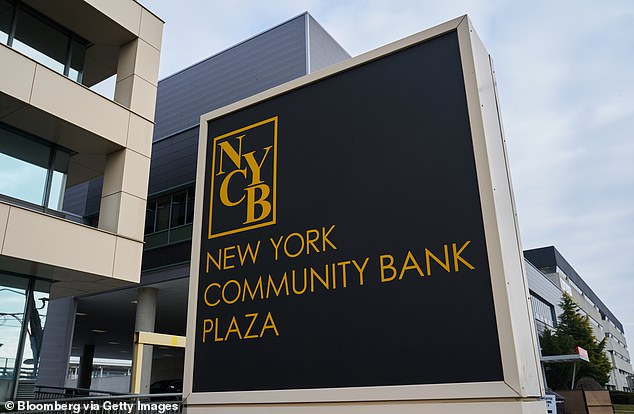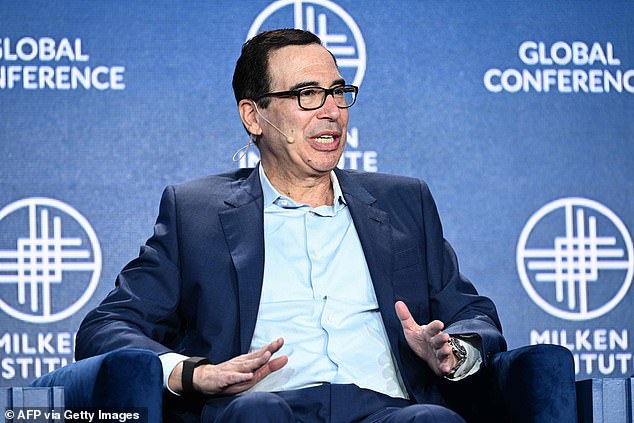- New York Community Bank Shares Rebounded on News of $1 Billion Capital Raise
- Its shares had plummeted 40 percent before the announcement.
- The bank appointed the former comptroller of the currency as its new CEO
<!–
<!–
<!–
<!–
<!–
<!–
New York Community Bank’s stock price soared this afternoon after the struggling lender announced a $1 billion capital raise and new leadership.
NYCB has agreed to a deal with several investment firms in exchange for shares in the regional bank, it announced Wednesday afternoon.
Those companies include Hudson Bay Capital, Reverence Capital Partners and Liberty Strategic Capital, headed by former US Treasury Secretary Steven Mnuchin.
The bank also named Joseph Otting, former comptroller of the currency, as its new chief executive.
Shares in the bank had initially fallen this morning after it was reported that it was seeking a cash injection to rectify its dire situation.

New York Community Bank Has Been Facing a Crisis Over Soured Commercial Real Estate Loans


The bank on Wednesday announced a $1 billion investment from a combination of companies, including Liberty Strategic Capital, led by former U.S. Treasury Secretary Steven Mnuchin.
But after the announcement that it had secured financing, its share price recovered above the $3.18 level it was at when markets opened in the morning.
Shares hit a low of $1.76 at 12:30 pm ET, but by 3 pm they had risen to $3.30.
The bank, with 420 branches and hundreds of thousands of customers, has faced a crisis in recent months after the quality of its commercial real estate loans deteriorated and rating agencies downgraded its credit status to junk.
Companies are giving up offices and retail spaces downtown, after Covid normalized working from home and catalyzed the decline of downtown shopping.
That left commercial building owners unable to pay lenders like New York Community Bank (NYCB). About 16 percent of its loans are for commercial real estate acquisition, development and construction.
The bank’s share price began to fall in late January after it cut its dividend and posted a surprise loss.
On the last day of the month they plummeted 38 percent, from $10.38 to $5.47.
Then last week, the Long Island-based bank revealed that it had identified “material weaknesses” in internal controls tied to its loan review.


Covid normalized working from home and catalyzed the decline of downtown shopping
The stock fell further after it revised its fourth-quarter results to report losses 10 times larger than previously, citing a $2.4 billion charge it linked to pre-2007 purchases.
Losses since January now stand at around 82 percent.
On Thursday, the bank also announced that its CEO, Alessandro DiNello, would assume the role of president and CEO, effective immediately.
New York Community Bank did not immediately respond to DailyMail.com’s request for comment Wednesday afternoon.
